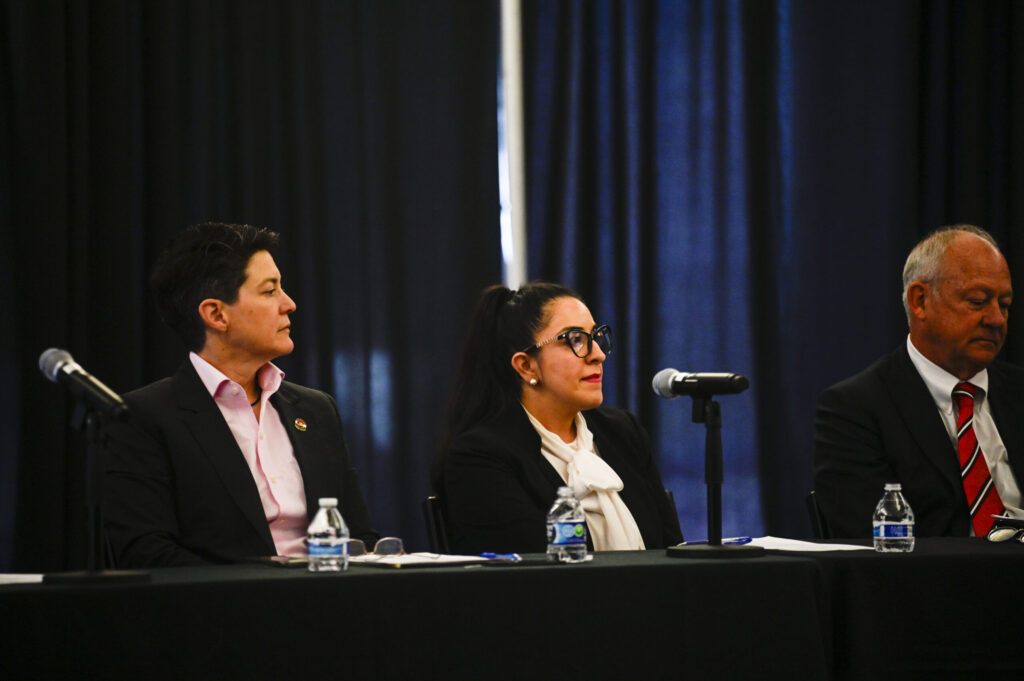Appeals court addresses defendant’s request to get property back 3 years after Supreme Court laid out process

Almost three years after the Colorado Supreme Court clarified how a convicted defendant may ask law enforcement to hand over his seized property, the state’s second-highest court found an El Paso County judge wrongly denied the man’s request to return certain items.
Jurors convicted James Woo in 2018 for the murder of Julie Tureson in Colorado Springs. He is serving a sentence of life in prison. During his arrest at Seattle–Tacoma International Airport, law enforcement seized his luggage and took other items from Woo’s San Francisco apartment.
Following his conviction, Woo requested the return of $18,514 worth of property still in the government’s custody, including electronic devices, his suitcase, medication bottles, jewelry, clothes and cash. After a dispute about how Woo was legally supposed to make such a request, the Supreme Court decided in December 2022 that Woo needed to use his criminal case as the vehicle.
The court outlined that once a defendant has credibly shown he owns or is entitled to the property, it falls upon the prosecution to prove the items should not be returned because of their connection to illegal activity, their potential use in future proceedings or that it would be “inappropriate to grant the defendant’s motion.”
In December 2023, District Court Judge Samuel Evig granted Woo’s motion to return several items in the government’s custody, including medication, paperwork and cash. However, Evig found other items were properly kept in custody.
“The prosecution is also correct that some items of evidence may be needed in future proceedings,” he wrote, adding that a new trial was possible because Woo was currently pursuing postconviction relief.
Evig further determined that Woo’s electronic storage devices were not appropriate for release because they contain “graphic images” of the victim that Woo could not possess in custody. Moreover, Evig believed it was not feasible to allow Woo to supervise the deletion of any inappropriate images, as Woo suggested, because it could alter evidence for the future.
Woo appealed, representing himself. He argued some of the storage devices contained no explicit images of the victim at all, and Evig failed to distinguish between those.
“The court makes no factfinding as to whether any of Woo’s hard drives actually contain explicit images,” he wrote.
Case: People v. Woo
Decided: September 11, 2025
Jurisdiction: El Paso County
Ruling: 3-0
Judges: Katharine E. Lum (author)
Lino S. Lipinsky de Orlov
Neeti V. Pawar
In a Sept. 11 opinion, a three-judge Court of Appeals panel agreed.
“As we understand his appellate arguments, Woo doesn’t seek the return of any images” of the victim, wrote Judge Katharine E. Lum. “But he contends that the prosecution didn’t present sufficient evidence that each of the image devices in fact contains such images.”
She noted the prosecution submitted brief descriptions indicating “protected” or “bookmarked” content on the hard drives, but there was no evidence about what was included in those labels. Moreover, Woo argued some of the devices predated his relationship with Tureson.
Lum also addressed one hard drive Evig declined to release because the prosecution could not access it and it might be relevant to a potential retrial.
“The prosecution didn’t explain, however, why it couldn’t open drive 66-RSH, nor did it present any evidence that it had tried and failed to do so or suggest what data stored on 66-RSH might possibly be needed for a retrial,” she wrote.
Rather than order release of the storage devices outright, the panel gave Evig the option of holding a hearing or receiving additional evidence before deciding the fate of the items.
The case is People v. Woo.













